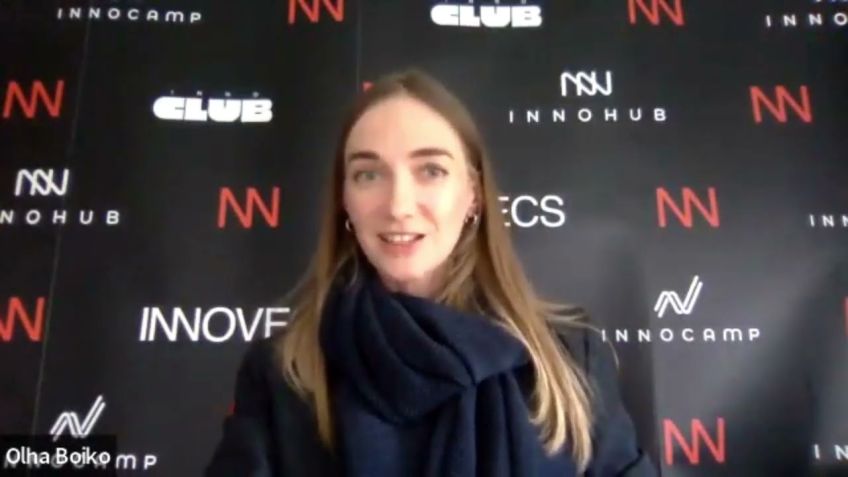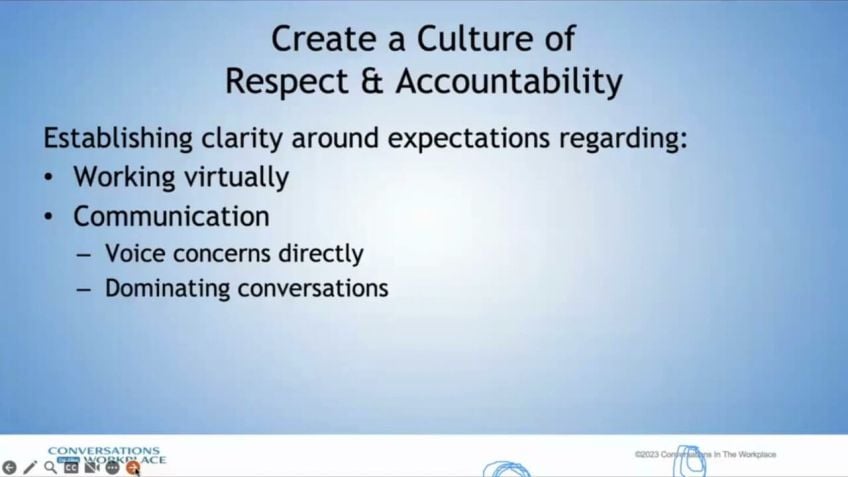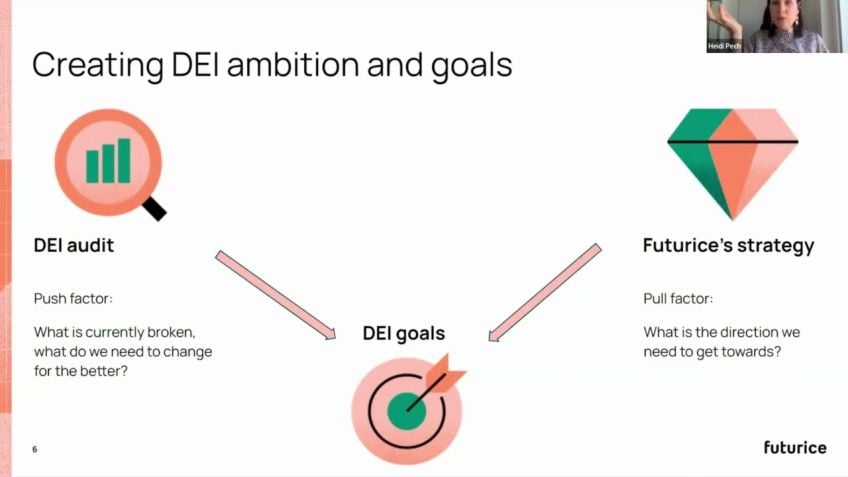What is it like working at Zalando? by Veronica Schilling
Veronica Schilling
Head of Culture, D&I and New WorkWelcome to Working Culture at Cilantro
Hello Everyone, and welcome from the beautiful city of Munich! My name is Veronica Schilling, and I am the Head of Culture and New Work at Cilantro, and today I'll walk you through our work culture. In the course of this article, I'll make culture tangible and hopefully, help you identify the workplace culture that best suits you.
Understanding Your Workplace Direction
Making the right career choices starts with understanding your skill sets, capabilities, upbringing, expectations, and aspirations. This journey might have you feeling like an imposter at times, but remember, it's all about exploration, solving problems, learning from mistakes, and setting important boundaries for your wellbeing.
Workplace Culture Defined
Workplace culture is the 'way things are done' and includes behaviors, attitudes, language, and even dress code. All these elements create the personality or character of that company. Despite seeming intangible, culture is very tangible and is based heavily on your values. It's also about knowing and understanding your personal boundaries and the team in which you work, which leads us to our next topic; the working culture at Cilantro.
A Deeper Look at Cilantro's Working Culture
Our vision at Cilantro is to be the starting point of fashion, a vision that both our business strategy and culture aim to enable while supporting the continuous growth of our employees.
The Language and Principles at Cilantro
Our founding mindset, the set of principles that guide our everyday behaviors, is our North Star at Cilantro. We also practice inclusive language with guidelines to ensure respect and kindness in our diverse work environment.
Our local culture has a significant influence, especially as we operate largely out of Berlin. While English is our main communication language, our multilingual workforce adds a dash of various cultures.
Cilantro Community
Our workforce is made up of various teams forming a community within the organization. Team rituals are an important part of creating a feeling of belonging.
Our Ways of Working
We adopt a hybrid working model, allowing flexibility for teams. Asynchronous communication is also prominent in our work environment, enabling better collaboration and communication.
As part of our drive for inclusivity, we ensure that our office space supports the diverse needs of our employees. We provide parent rooms, prayer rooms, dog-friendly spaces, and inclusive restrooms among others.
Diversity and Inclusion at Cilantro
Diversity & Inclusion (D&I) is a crucial part of our strategy at Cilantro, shaping both how we serve our customers and partners and how we support our workforce. Our D&I efforts can be seen in our commitment to increasing women in leadership and tech roles and creating a supportive and inclusive work environment through feedback and surveys.
Socket
At Cilantro, we aim to make our work culture as tangible and relatable as possible for our employees. It is our hope that we make everyone feel supported and included in their team and in the larger Cilantro family. After all, being a part of Cilantro means being a part of our team - and we are all each other's biggest fans.
We are eager to answer any questions you might have! Please feel free to connect with us on LinkedIn and ask about our experience as part of the Cilantro team.
Video Transcription
So, hello everyone. I hope you're having a great day wherever you are. Um I'm actually um in a part of world way. It's a wonderful spring day here in Munich. It's super nice. Um And it's just uh I'm super happy to be here at this conference today.Um My name is Veronica Schilling and I'm uh the head of Culture DN I and uh new work at Cilantro. And I'm super happy today to share with you some insights on what is it like working at Cilantro. And also in the course of this presentation, I will also make culture tangible for you. So that as a result of it, you will, you know, help you to identify the workplace culture that best matches you and fits you. So with that, um let me go into a little bit uh details about myself first before I get into uh Solando and the workplace. Um I grew up, for example, with a lot of motivation talk, the sky is your limit, you can do whatever you want, just aim high and so on. And at one point, I had a really interesting teacher who said to me, you know, you need to create your own sky and your sky is different to someone else's and it's because you have different skill sets and you have different capabilities, you have different upbringings and also you have different expectations and what you want in life.
And that sort of stuck in my head right for, for a long time. And, um, today when I look back and I thought to myself, well, my sky has been all kinds of colors. So there were times when it was gray and at times there were um you know, it wasn't rainbow. Um And I would like to share a little bit on my journey so far uh in designing my sky. I, I really think that I started small. So I had a little bit of like, you know, an imposter syndrome on me that, you know, whether I can really do it, am I doing the right thing? Am I good enough and so on? Um But I took a journey of exploring, exploring different roles uh exploring, working with different people. And in the course of this time that I explored, I actually found that I enjoy doing, doing a certain type of work and it has to do with something to solve a problem. And one of the problems I saw I saw was when I was in a boardroom as one of the junior staff doing, you know, uh some of the support work I noticed that people who sat around me were, you know, looking very much like, how would you say Penguins in, in, um, in their addresses?
Dress code. And with that, I thought to myself, well, this is a problem I would like to solve one day and it kind of stuck in my head and later on I went to do that. Exactly. And I found as well challenging work because of that because I started to have this mindset to solve problem. And it also means that when I solved problems, I made mistakes, but I also created really good solutions. And these are things that I guided my journey. And then at some point, I also realized that I needed to set some boundaries for myself. Uh When I started to also have my two Children and these were important for me, for my happiness and well being as well. What did I do there? I kind of like stopped traveling a bit. I then was focusing more and using my time. I did it flexible, working hours and so on. And this was important for me. And so, and then of course, you learn from your mistakes and you grow in your journey. And I've designed my own sky based on these journeys of mind. And I've added some of the questions here for you to reflect on because even if you are in the beginning of the journey in your life or you have, you know, covered 10 years behind you, we still need to look back and we still need to find what are the building blocks that we've put into place that we have step by step, guided us in our journey.
And for me, in this journey, culture was very important and was very critical. So this, this included also the national culture of the country that I was living in because this also defined the opportunities I had uh within that culture because that culture influenced the workplace that I was working in. So let me first define what is culture. Um Before I go into deeper to share about culture and you, so the culture is the way things are done around here. So in a workplace, so it could be behaviors, the attitudes to the language that is being used, the rituals, um even the dress code and so on. And these combination of things actually create the personality or character of that company or the workplace. So it seems intangible all the time and wake sometimes, but it doesn't have to be culture is actually tangible. And the first thing that matters is your values before you uh think about the culture of a workplace and what would fit you and match. You need to take a step back and look at your values. And why is this important? I'll give you an example for my life.
Um I was asked once to join an organization which um was dealing with spirits and tobacco and my values are very strong around well being and health. And because of that, I didn't find this was the right match for me. So that's values and other part of it is also understanding your personal boundaries. What kind of boundaries do you want to set for yourself? Some people enjoy working extremely long hours. Other people would want different mix of things. Other people would like to have a certain amount of work which is flow work and other work, which is work, which is probably not so inspiring. However, you set your boundaries and knowing and understanding your boundaries and what you need will be really important for you to find the right culture that supports you. The other thing I also learned is your lead and the team that you work in. So for me, it was really important that my lead does not micromanage me. And this was something that I had all the time throughout my career because I wanted to solve problems. So if you want to solve problems, you need to have this free space to think about an issue, to find the right uh solutions around it, to collaborate with others and so on. And if you had uh and and I needed that space from my lead.
On the other hand, I have friends who actually would prefer that they are leads and the teams that they are in provides them explicit guidance so that they are actually you know, finishing off with their work in a, in a, in a very easy way. So this is something that they appreciate it. So there is different things what we want, but we need to be first clear about what we actually want before we can find the right matching culture for us. So with that, I'll go into Zalando. Now, now I'm gonna give you a lot of examples of how Solando, what it's like to work in Solando, which then should give you a good impression of, you know, what is the culture that you two would like to look at um as you build your careers. And so our vision is to be the starting point of fashion. And with this vision, this means that both our business strategy but also the culture of the organization, what we are designing and shaping is to enable this vision that we have in place, but also to support our employees who are here with us to continue to thrive, right in all ways.
Um so that we are a company that is um the starting point for fashion. And so going into some details how I've structured this presentation is, I'm going to cover a little bit on language and principles. I'm going to talk about our community. I'm gonna also share with you um something around the ways of working uh how we work around here and also um a little bit different insights into diversity and inclusion. So in terms of our language. So our founding mindset is a set of principles that is actually guiding our behaviors in our day to day life. It's actually our North Star. Uh But still we use it in our daily terms. Uh every day you will find it published on our website, by the way. And I would encourage some of you to check it out and also to read it. Um because there are a number of amazing um you know, mindsets there. And it starts with one of those that I personally like is like think big act fast or your team's biggest fan, which is something I'm going to be touching across the whole of my presentation. Um We also practice inclusive language um as a guidance. So we have guidelines around it. And it's very important because we are really, really a diverse work environment which has people from all over the world working in one area. And it is so important for us that we have language that is respectful language that supports each other.
And that is kind, I'll give you an example. Uh For example, one day, I was just randomly saying it has been a crazy week and of course, because we care a lot about mental health and the well being of our employees, one of my colleagues said to me, well, you know, maybe you would, would want to consider saying something like I've had a rough week.
So that is actually how we use language in our day to day life and we encourage as well inclusive language. The other thing is about local culture in Solando. And um we operate um large form of our workforce actually works out of uh Germany and specifically also working out of Berlin. We have uh it's an extremely multifaceted city, it's a multicultural and, and also it is a city that is very open to fashion. And um and you find that this has a certain influence into our workplace. At the same time, local culture is also about language while we actually use English as our main language. But there is a strong influence, of course, because we operate in Germany that we have the German language which we need to use for all the official dealings in Germany. This means that we do not have English as our native language, but it's a language which has a dash of many different cultures in it uh while we are working at Solando. So that's how a local culture has influenced also our language here at so London, our favorites. Um This is something about our culture. We, we use often this term of um we are solving the problem, we are solving a problem, we're solving a problem for our customers. Um What is the problems that we solve, which is very tied to our founding mindset.
Uh And, and those problems should be problems that matter as Well, so three years ago when I was in my interview process in Salento, and when I started to hear this language that was used by the hiring manager, I realized that, hey, that connects with my own values of wanting to solve problems.
And so I checked out the founding mind said I went through it and then I thought, well, this might be just the right fit for me as a culture. So that's about our language. So and I would also would like to share a little bit about our community. What does it mean? A community in any culture, different cultures have different type of communities. Ours is a community of teams. What does it mean? Because Zalando are working in various types of teams. We have the tech teams, we have the fashion teams, we have the logistic teams, we have international teams, we have also Berlin based teams and so on. So teams are something that is, you know, part of uh what Solando workplace is about. And um and it's really important for us because it's where we build the first sense of belonging because Orlando are very diverse. They come from different environments and they come into us. We felt that the first experience they have within their teams are super important.
And so team rituals are important in Zalando. So each of the teams have their own rituals. Some teams have very strong rituals around celebrations and and and recognition others could have rituals around um a lot of bonding activities and community activities. And some teams actually also have very unique um um rituals within their teams. So, for example, my team, we always have a close off the week um ritual at the end of the day and at the on, on Friday afternoons, um teams at Orlando also do retros what we call them. So if people have worked together in a project and we are closing a project or in the middle of a project, doing a retro of understanding how is it working, what are the things that we could improve? Um acknowledgment each of each other like call outs and so on is just part of how Solando works as well. And uh this is also tied to projects that we work across teams as well. So Rachels are part of every day's London life, so to say one Solando and here um while we work in many different teams across Solando, we actually also encourage Zanos to contribute to their community.
So Zanos actually are very passionate, so many Zanos will volunteer and work on their passionate projects. So usually this creates a certain sense of wanting to support each other. Um whether being a mentor, mentor or all the way to being a well-being ambassador leading our er GS or being part of any community where your your expertise is shared so that you are building each other. So this is how the community of uh Solando feels like and it's a community of teams, which is what community means at Solando. So in terms of ways of working Zando has went on a journey as well as many organizations in terms of where, you know, how would we organize ourselves after this pandemic? And today we are uh working in a hybrid working model. So what does this mean as well in practice? So our teams actually get together and they work on what we have called it. Our team charters where they have a collaborative agreement on this is how we would like to work together. This is the cadence that we would like on site. And this is the cadence of remote uh when we will be in remote. And these are all the rituals that we need to have in place to make sure that we are working effectively together in hybrid.
And this is a new journey for us. It has started off really well. We provide that flexibility for the teams to act on. And this actually is a journey uh which is, you know, a very inspiring one for us at Solando. At the same time, we also have work from abroad. We understand that a lot of our colleagues would like to work from different parts of the world, sometimes both for, you know, uh enjoying the environment to having families in different um markets so that, you know, they can have this 30 days that they can spend in different locations um following the certain guidance that we have in the organization.
So you need to imagine that we have teams that are working hybrid. We have sometimes colleagues that are working um abroad. So they will be working remotely. So as synchronous communication becomes very important for us. So this is the mode that we um uh are strongly using in most of our teams. So people will be able to work together in a document. People will be able to contribute at different times that works for them when they are available so that there is information sharing, but also a strong sense of collaborating and communi uh communicating um what we would like to bring to that particular project or a proposal and so on.
So a synchronous communication is part of how we work at Solando. Now, when DN I is is a very important part as well on how we shape our on site experience. So when you are in our offices in Clan, we want our employees to feel that this is also an inclusive space which supports the different needs of um you know, all our employees basically. So besides offering very, very beautiful, wonderful collaboration spaces, what we also do is provide um we are a dog friendly uh environment, we support parents with parent rooms, we have prayer rooms for our colleagues. Um We also support in terms of making sure that uh we have uh inclusive restrooms um for our colleagues who are transitioning and also in terms of, you know, supporting our neurodivergent colleagues, we also have, you know, we make sure that there is a lower noise or there is special lighting and systems that supports that everyone is actually feeling that this is also a workplace for me when I am on site uh working together with my teams.
So this is a bit about how tangible um it feels like at Solando um on a day to day basis, I would like to also cover in terms of um there was an inclusion um DN I is um part of Solando strategy. What does it mean that it is part of Solando strategy is that usually DN I could be approached as a single form of uh strategy within the people um part of the organization which is to attract talent and so on. But for us DN I is part of how we serve our customers and our partners, but also how we enable our employees as well and also how we support the very diverse workforce that we have within Salant. We have a number of commitments that we have committed within the uh do better DN I strategy. You will find it all on our website. We also have AD N I report which you can actually get a good understanding on what's the, what is the progress that we are making within Solando women in leadership? And women in tech uh continues to be one of our areas of priority. And I would like to share with you that uh in terms of women in leadership, you will find that we have 37% of our leaders are women and we have 25% women in tech. And we have a number of activities that's supporting both um women in their careers.
But at the same time, we are also looking into um enabling as well our leads to support um their talent. And I also would like to touch a little bit on inclusive listening and two way feedback. What does it mean? Because we are a very diverse work force in one location uh of multi uh generations and uh people from various different backgrounds from different parts of the world are all together. Um It is important for us to continuously listen to what our employees are telling us. So we conduct very regularly um surveys uh which are happening on a quarterly basis that's, you know, just trying to get a good insight on how people are feeling in the organization. And this happens on a regular um cadence, quarterly cadence. And then we also have um really um taken a moment to also run DN I surveys to also listen to our employees. We also do focus groups, we listen to our er GS in a very active way. And also we allow our colleagues to bring up a lot of ideas on how we can improve our work workplaces. And a lot of the movements that we have done in Solando has to do with feedback uh from our colleagues, feedback of what needs to be improved in order to support a very diverse uh workplace.
And all of those examples that I gave you just now about our inclusive uh uh offices all came because our employees were raising up their needs And the organization has looked into supporting that to have to make it happen. And we also have two way feedback. So this is of course, the feedback for growth and development and this continues on. Uh uh Throughout the year, we have a very strong enablement and support around this. Um This is really uh Solando culture because we do believe that with fake feedback, we are actually raising the bar in how we serve our customers and also how our employees can have a really supportive work environment at Cilantro. Right? With this, I actually cover all four main parts of uh what it's, what is it like to work at Cilantro? I hope I have made culture tangible for you. I have, I hope I have, you know, made it um something that you can also feel whether you know, how can I ask for the right? How can I ask the right questions to understand uh a culture of an organization? Thank you very much for listening to me. I hope um that, you know, I wish you all the best in your careers. And if you have any questions, I hope you will join my colleagues at the Solando Booth. So that, you know, if you have further thoughts on Solando, you have other questions of opportunities.
Please take that time to reach out to the colleagues. Thank you so much. If you would like to collect, connect with me on linkedin, please do so. And I wish you all the very best. So actually, I actually, I have a question. So um it says Hyper, I thank you. Thank you very much. Um happy that it was helpful. How do you apply? Be your team's biggest fan on your daily work? Do you see it from a bigger team's perspective or in your one to ones? Great question. We actually do all. We do it in terms of one to ones, we do it in terms of um uh giving feedback to each other. We, you know, between peers, giving feedback to each other, we believe in taking care of our team. So what are the uh uh needs of individual members in the teams? So we do a lot of check ins to figure out as well as everyone. OK. Uh We also talk a lot about workload. How do we, you know uh support each other if there is a particular area that has more work than the other areas? So basically our combination of rituals and a combination of really communication, being, being very respectful to each other and understanding our needs. This is all part of being um your team's biggest friend uh fan. And this also means that it's just not just your team, but also to consider the bigger Solando team to also support your colleagues around as well to be part of the community as well.
So I hope I've answered your question but uh please also check in with my colleagues because they would also have some really good examples from their teams as well, uh which I think is going to give you some more insights on the different teams that they are probably working on while at our online booth as well.






